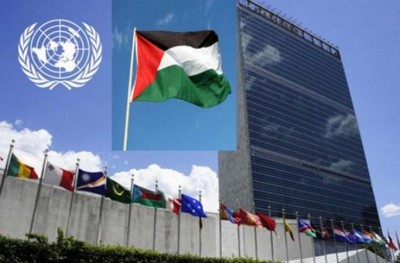Detroit Activists Fighting for Ban on Facial Recognition

DETROIT, Mich. – A coalition of grassroots organizations is pushing to end the use of facial recognition technology in the city.
BYP100, Green Light Black Futures, We the People Michigan and Detroit Community Technology Project have banded together to fight what they call “hyper-surveillance and facial recognition technology.” A post on BYP100’s Facebook page proclaims, “We aim to dismantle Project Green Light and Facial recognition software used by police.”
On Sept. 19, the Detroit Board of Police Commissioners (BOPC) approved a new policy that put some limits on the use of facial recognition. Under the rule, police can’t use facial recognition technology on video – live or recorded. They can only use it on still photos. But this does not preclude cops from using the technology on photos pulled from videos. Police are also prohibited from using it to assess a person’s immigration status.
According to a Facebook post by Green Light Black Futures, the BOPC voted abruptly for the use of facial recognition technology in policing toward the beginning of the meeting without hearing public comments. The vote was 8-3 in favor of the proposal.
BOPC Chairwoman Lisa Carter said she believes the prohibitions contained in the revised directive address many of the concerns raised by the public.
“The revised directive is not a complete ban on the use of facial recognition. The revised directive gives clear direction and lines of authority to the department as to when and how such technology can and cannot be used.”
Despite the new limits, activists said they would continue to push for a ban on facial recognition.
“We know that decisions like these will continue to hurt poor Black people and we also know we must continue to learn, grow and build with our communities,” the Green Light Black Futures post said.
A post by BYP100 said, “The fight is not over! We have house bills circling that would put a ban on facial recognition technology. This isn’t over until WE (the people) say it is. Period!”
Detroit has developed an extensive surveillance system known as Project Green Light utilizing a network of thousands of government and private cameras throughout the city. The cameras are installed at schools, parks, apartment buildings, immigration centers, gas stations, churches, hotels, fast-food restaurants, and even in places such as addiction treatment centers and abortion clinics.
The program was implemented in 2016 and was generally popular due to the promise that it would deter and help solve crime. As the New York Times pointed out, the system is anything but covert. A flashing green light marks the location of every camera linked into a network that feeds directly into the Detroit Police Department’s downtown headquarters.
Like virtually every government program, the surveillance network has expanded over time. Now, the revelation that police are using facial recognition with the camera system has sparked controversy. The City of Detroit spent more than $1 million on facial recognition technology back in 2017.
According to the NYT, the program matches images captured by the cameras against driver’s license photos and police mug shots held in a statewide police database. The DPD purchased its facial recognition system and put it into operation without approval from the elected Board of Police Commissioners that is supposed to provide oversight and accountability for the department. According to the Metro Times, the commission has evolved into “a virtual rubber stamp for Chief James Craig and Mayor Mike Duggan, who appoints some of the members and helped campaign for the commission chairman, Willie Bell.”
Duggan tried to assert that the police department was not and would not be using the technology via a misleading tweet.
Beyond the broader privacy implications, the use of facial recognition technology is problematic due to its proven lack of accuracy in identifying people with dark skin pigmentation. “We live in a major black city. That’s a problem,” a software engineer told the Times.
The coalition is planning a meeting on Sunday 9/29 2-5 p.m. It is being promoted as a “community conversation around mass surveillance and redefining community safety.”
This activism is part of a broader growing resistance against facial recognition in cities and states.
San Francisco and Somerville, Mass. have both banned facial recognition technology. The New York Assembly is considering a bill to ban facial recognition in schools. And a bill introduced in the Michigan legislature would place a total ban on police use of facial recognition.
Related Articles:
Law enforcement officials say facial recognition software can be an effective crime-fighting tool, and some landlords say it could enhance security in their buildings. But civil liberties activists worry that vulnerable populations such as residents of public housing or rent-stabilized apartments are at risk for law enforcement overreach.
A tech privacy report, that has been swept under the rug by the mainstream media has declared that Americans are about to live through the very world Orwell wrote of. Georgetown researchers are warning Americans about a sophisticated real-time face surveillance system that’s about to become an “imminent reality” for millions of citizens across the country. Ground zero, though, appears to be Detroit.
The push to turn America’s cities into Chinese-style surveillance networks has found a new partner in Detroit, Michigan The only difference between what is happening in San Diego and what is happening in Detroit is, they are not using the same smart street lights to spy on everyone. Detroit uses Intellistreets a company known to have strong ties to Homeland Security.
The push to turn America's cities into Chinese-style surveillance networks has found a new partner in Detroit, Michigan. The only difference between what is happening in San Diego and what is happening in Detroit is, they are not using the same smart street lights to spy on everyone. Detroit uses Intellistreets a company known to have strong ties to Homeland Security.
If someone has been trashing your Detroit gas station for an hour, and cops still haven't responded, chances are your business hasn't enrolled in Project Green Light.
Last year police in Detroit, Michigan asked businesses to install real-time surveillance cameras that are connected to police departments. However “Project Green Light Detroit" (PGLD) may change that and force businesses to pay for it.
Businesses in Detroit that wish to stay open after 10pm will have to join the city's high definition crime surveillance program. Shop keepers who participate in the program benefit by receiving prioritized Emergency Response Services when calling 911.
Detroit police and city officials are drafting an ordinance that would make it mandatory for all venues that serve customers after 10 p.m. to join Project Green Light, a program that allows officers to monitor businesses’ high-definition video feeds in real time.



